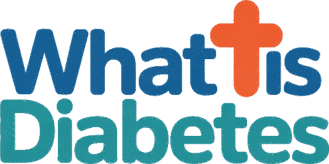Understanding Gestational Diabetes Management

As the prevalence of gestational diabetes rises, understanding this condition becomes essential for expectant mothers and their families. What steps can you take to ensure a healthier pregnancy journey?
What You Will Learn
- Gestational diabetes occurs when the body cannot produce enough insulin during pregnancy, leading to elevated blood sugar levels.
- Risk factors include being overweight, having a family history of diabetes, and being over the age of 25, which can empower proactive health measures.
- The prevalence of gestational diabetes affects about 6-9% of pregnancies in the U.S., highlighting the importance of education and support.
- Preconception counseling can help reduce the risk of gestational diabetes by addressing nutrition, weight management, and physical health.
- Family involvement can significantly enhance lifestyle changes, fostering a supportive environment for healthy choices.
- Effective nutrition counseling is crucial for managing gestational diabetes, ensuring families understand carbohydrate sources and meal planning.
Gestational Diabetes: Key Statistics and Risk Factors
Understanding the prevalence and contributing factors of Gestational Diabetes (GDM) is crucial for effective management during pregnancy. The visual below highlights key statistics and common risk factors.
GDM Prevalence in the U.S.
Key Risk Factors for GDM
• Overweight/Obesity • Family History of Diabetes • Age Over 25 • Previous GDM • PCOS or Ethnic Background
Understanding Gestational Diabetes: Definition and Prevalence
Gestational diabetes is a condition that can occur during pregnancy, where the body cannot produce enough insulin to handle the extra glucose in the bloodstream. This can lead to elevated blood sugar levels, which may affect both the mother and the developing baby. It's crucial to understand what gestational diabetes (GDM) is, as it can have significant implications for health during and after pregnancy.
Many expectant mothers wonder whether they are at risk for GDM. While anyone can develop this condition, certain factors can increase the likelihood, including an elevated Body Mass Index (BMI), having a family history of diabetes, and being over the age of 25. Recognizing these risk factors can empower women to take proactive steps in their pregnancy journey!
What is Gestational Diabetes and Who is Affected?
Gestational diabetes typically develops around the 24th to 28th week of pregnancy. It affects how the body processes sugars, making it challenging to maintain normal blood sugar levels. Women of all backgrounds can experience GDM, but studies show that some populations may be more susceptible. Key risk factors include:
- Being overweight or obese
- A family history of diabetes
- Previous gestational diabetes in prior pregnancies
- Polycystic ovary syndrome (PCOS)
- Certain ethnic backgrounds, including Hispanic, Black, Native American, and Asian American
Understanding who is affected by gestational diabetes can help improve awareness and early detection, which is vital for effective management during pregnancy!
Prevalence Rates: Insights into GDM Incidence
The prevalence of gestational diabetes has been rising in recent years, impacting about 6-9% of pregnancies in the United States alone. This statistic is quite concerning, as it indicates a growing need for education and resources aimed at managing this condition. Factors such as increased maternal age, obesity rates, and lifestyle choices contribute to these rising numbers.
Research also indicates that the incidence of GDM can vary by region and population demographics. Understanding these statistics is essential, as they highlight the importance of health education and support for pregnant women. At What Is Diabetes, we are dedicated to empowering individuals with the knowledge they need to navigate their health journeys effectively!

Quick Summary
Here's a brief recap of the key points discussed so far:
- Gestational diabetes occurs when the body cannot produce enough insulin during pregnancy, affecting both mother and baby.
- Key risk factors include being overweight, family history of diabetes, and certain ethnic backgrounds.
- The prevalence of gestational diabetes has been rising, impacting 6-9% of pregnancies in the U.S., highlighting the need for education and management resources.
Empowering Families: Prevention and Support Strategies
When it comes to gestational diabetes, the journey doesn’t have to be walked alone. Empowering families with the right knowledge and resources is crucial for managing this condition effectively. By focusing on prevention and support strategies, we can help expecting mothers and their families navigate this period with confidence and ease.
One of the best ways to reduce the risk of gestational diabetes is through proactive measures before conception. This is where preconception counseling comes into play. During these sessions, healthcare providers can assess risk factors and recommend lifestyle changes that could lower the chances of developing gestational diabetes.
Preconception Counseling for Reducing GDM Risk
Preconception counseling is a fantastic opportunity for future parents to prepare for a healthy pregnancy. This process involves discussing various factors, such as:
- Weight management and nutritional needs
- Physical activity guidelines
- Medical history review, including family history of diabetes
- Stress management techniques
By addressing these aspects, families can start their journey on the right foot and minimize the risk of gestational diabetes.

Family Involvement: Engaging Loved Ones in Healthy Lifestyle Choices
Involving family members in healthy lifestyle changes can make a significant difference. Having the support of loved ones can empower expectant mothers and promote a team approach to wellness. Here are some ways families can engage together:
- Cooking nutritious meals as a family
- Participating in physical activities together, like walking or yoga
- Sharing responsibilities for monitoring blood sugar levels
- Encouraging each other to make healthier choices
Working as a team not only fosters a positive environment but also helps everyone develop better habits that can last a lifetime.
Nutrition Counseling and Health Education for Families
Nutrition counseling is another essential element in managing gestational diabetes. It’s not just about the mother; educating the entire family can enhance the success of dietary changes. Here’s what effective nutrition counseling might include:
- Understanding carbohydrate sources and their effects on blood sugar
- Learning to read food labels and make healthier choices
- Strategies for meal planning that consider blood sugar levels
- Incorporating regular meals and snacks to maintain stable blood sugar
At What Is Diabetes, we believe that informed families can make a real impact on managing gestational diabetes. Providing resources, tips, and guidance helps everyone involved feel empowered and knowledgeable about their roles in this journey. For comprehensive guidance on managing GDM during pregnancy, the American Diabetes Association provides detailed standards that can be incredibly helpful for expectant mothers and their healthcare providers.
Frequently Asked Questions (FAQs)
- What is gestational diabetes?
Gestational diabetes is a condition where the body cannot produce enough insulin during pregnancy, leading to high blood sugar levels. - Who is at risk for gestational diabetes?
Risk factors include being overweight or obese, having a family history of diabetes, being over 25, previous gestational diabetes, PCOS, and certain ethnic backgrounds. - When does gestational diabetes typically develop?
It usually develops around the 24th to 28th week of pregnancy. - How common is gestational diabetes in the U.S.?
It affects about 6-9% of pregnancies in the U.S. - What is preconception counseling?
Preconception counseling involves discussing risk factors and lifestyle changes before pregnancy to help reduce the chances of developing gestational diabetes. - How can family members help manage gestational diabetes?
Family involvement can include cooking healthy meals together, participating in physical activities, and encouraging healthier choices. - What does nutrition counseling for gestational diabetes involve?
It includes understanding carbohydrate sources, reading food labels, meal planning strategies, and incorporating regular meals and snacks to maintain stable blood sugar.
Recap of Key Points
Here is a quick recap of the important points discussed in the article:
- Gestational diabetes (GDM) occurs when the body cannot produce enough insulin during pregnancy, leading to elevated blood sugar levels.
- Key risk factors for GDM include being overweight, having a family history of diabetes, and being of certain ethnic backgrounds.
- The prevalence of GDM is rising, affecting approximately 6-9% of pregnancies in the U.S., highlighting the need for education and resources.
- Preconception counseling can help identify risk factors and recommend lifestyle changes to reduce the chances of developing GDM.
- Engaging family members in healthy lifestyle choices can enhance support and promote better habits for managing GDM.
- Nutrition counseling is vital for educating families on managing blood sugar levels and making informed dietary choices.








